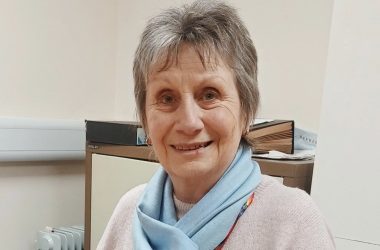Dr Felicity Rice, 43, is the independent BCP councillor for The Alliance for Local Living in Oakdale, who was previously engaged as portfolio holder for environment and climate change. On October 29th, Dr Rice, was arrested on suspicion of obstructing a highway when she took part in a Just Stop Oil protest in London. She pled not guilty to the charge, and last week she was discharged from court. As part of The Breaker’s coverage on the local impacts of climate change, Dr Rice spoke to Lewis Hunt about her experience as an activist.
How did you handle the reactions from members of the public at the Just Stop Oil protest?
So, we’re giving training, to be more confident in terms of knowing different techniques of interaction with members of the public, because when you are blocking a road, you are potentially disrupting somebody’s day, and it can either not have any impact on them at all, or they can take that as a direct attack on themselves. So, it’s very important to be aware of these different reactions from members of the public.
On the actual day, we are obviously non-violent, so we are given training on, for example, making sure you don’t even raise your arm, even things like maintaining eye contact as that could be seen as violent to some people. So, there’s lots of different ways of interacting with people.
What I tend to try and do is ask them: “what are you upset about? Do you want to know why we’re here?”, I try and get into a gentle conversation. I’ve never really experienced violence myself, although, there have been people swearing at me.
I’ve never been dragged, but I have seen other people being dragged. It’s the fact that they perceive that they’re being attacked themselves because they can’t drive their car past. It is usually car drivers; people that are in their car and they’re physically being stopped from carrying on their day.
Could you explain what you mean by other protestors being “dragged?”
They’ll be sat on the ground and, for example, a car driver who wants to get past will stop and get out of their car, come and drag the protestor to the pavement, and then they will get back in their car and then drive through.
But occasionally there’ll be a car driver who wants to get through, and there’ll be a member of the public that decides “yeah, this really isn’t right,” and the two of them together will maybe drag a protestor as well.
Do you believe your arrest was an appropriate legal reaction given your right to peacefully protest under Article 11 of the Human Rights Act 1998?
I don’t think it was appropriate. I think it’s because the government isn’t sure about what to do because they know that they shouldn’t be investing in fossil fuels, but they can’t resist it. Therefore they’re getting scared about members of the public that are standing up to them.
The most obvious solution for them is “let’s just arrest them.” But protestors are being found not guilty because it is deemed reasonable to protest because of the severity of the climate crisis and the inaction of government.
It’s not necessarily one person…it’s a whole system. There’s an awful lot of people that the fossil fuel companies are in contact with within government, within the civil service and, within the police as well.
If you had good leadership within government, for example, in Germany, where I think they got a bit nervous and they did arrest some protestors. But they immediately released them all because there was such an outcry from members of public that anybody was being put into prison for non-violent protest. Whereas here, we’ve got politicians actively encouraging the police to gather more information and try and get people prosecuted and put in prison.
Considering your position as a BCP Council member, how comfortable would you feel repeating your demonstration?

I would say that none of it is comfortable. I certainly don’t like being in the public eye, and I don’t like causing disruption. It doesn’t come naturally. For example, I never had a detention at school, I don’t like it when people tell me off, however, morally, when I think about the destruction that the government is continuing to actively cause, and the insight I’ve had into how party politics works throughout our society, that insight gives me the courage to say this is not right, this shouldn’t continue.
Is there a line to be drawn for climate activists?
Well, if you look at the damaged caused by fossil fuel companies, there appears to be no limit for them. They are murdering people in the rainforest, they are indirectly killing an awful lot of people through starvation, and through creating desert out of previously habitable land.
That’s pretty extreme, isn’t it? So, if you compare anything that any climate activist has done so far, it pales in significance compared to the damage that fossil fuel companies have knowingly done. It’s not as if they didn’t know they were doing this.
I always feel that climate activists should display what they want to see in leaders, so they should be based on evidence and truth, and they should be non-violent, and they should be respectful. But that also includes a degree of assertiveness. If you believe that millions of people are going to be killed by climate change, then it is certainly reasonable to sit in a road peacefully to say that this isn’t appropriate.
What about ordinary citizens? What do you believe we can do as individuals to contribute to positive change?
Well, there’s lots of different ways to get involved in any sort of movement. For example, fundraising and spreading the message on social media, endorsing organisations so that there’s a positive image of Just Stop Oil or Extinction Rebellion out there. There are plenty of people being negative about these organisations. I’ve often found that the positive messaging on social media is difficult to do because the negative is so overpowering.
I suppose for people that are unsure about what to do next, a lot of these campaign organisations are very informative about any aspect that you may be worried about. And for me, the step that was required was just being organised to attend a meeting and then ask questions. Once I was satisfied that I was no longer fearful, then I had the knowledge to make the next step.








